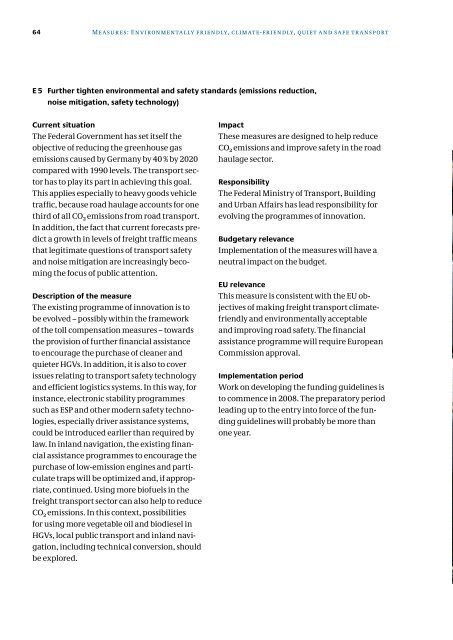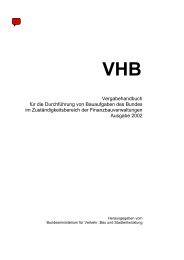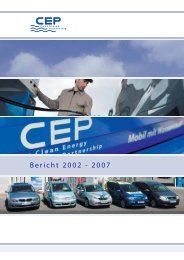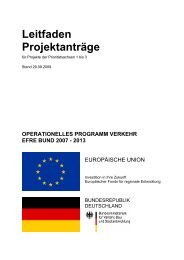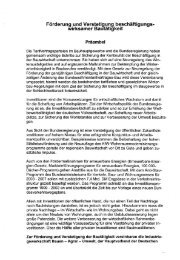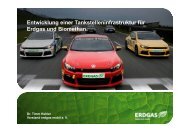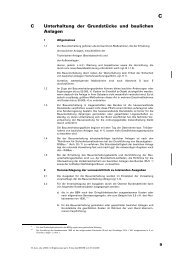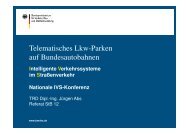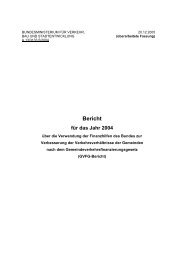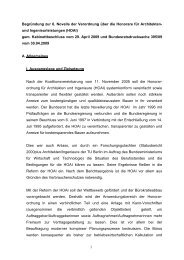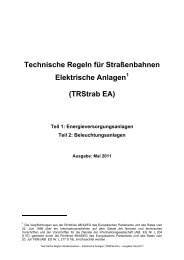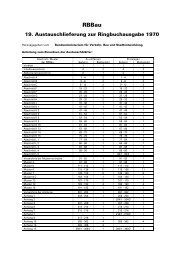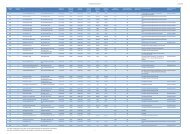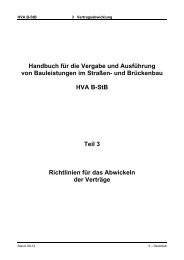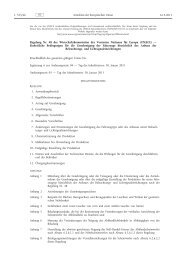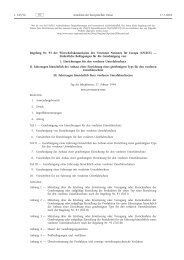Freight Transport and Logistics Masterplan - Bundesministerium für ...
Freight Transport and Logistics Masterplan - Bundesministerium für ...
Freight Transport and Logistics Masterplan - Bundesministerium für ...
Create successful ePaper yourself
Turn your PDF publications into a flip-book with our unique Google optimized e-Paper software.
Measures: Environmentally friendly, climate-friendly, quiet <strong>and</strong> safe tr ansport Measures: Good working conditions <strong>and</strong> good tr aining in the freight tr ansport industry<br />
E Further tighten environmental <strong>and</strong> safety st<strong>and</strong>ards (emissions reduction,<br />
noise mitigation, safety technology)<br />
Current situation<br />
The Federal Government has set itself the<br />
objective of reducing the greenhouse gas<br />
emissions caused by Germany by 40 % by 2020<br />
compared with 1990 levels. The transport sector<br />
has to play its part in achieving this goal.<br />
This applies especially to heavy goods vehicle<br />
traffic, because road haulage accounts for one<br />
third of all CO ² emissions from road transport.<br />
In addition, the fact that current forecasts predict<br />
a growth in levels of freight traffic means<br />
that legitimate questions of transport safety<br />
<strong>and</strong> noise mitigation are increasingly becoming<br />
the focus of public attention.<br />
Description of the measure<br />
The existing programme of innovation is to<br />
be evolved – possibly within the framework<br />
of the toll compensation measures – towards<br />
the provision of further financial assistance<br />
to encourage the purchase of cleaner <strong>and</strong><br />
quieter HGVs. In addition, it is also to cover<br />
issues relating to transport safety technology<br />
<strong>and</strong> efficient logistics systems. In this way, for<br />
instance, electronic stability programmes<br />
such as ESP <strong>and</strong> other modern safety technologies,<br />
especially driver assistance systems,<br />
could be introduced earlier than required by<br />
law. In inl<strong>and</strong> navigation, the existing financial<br />
assistance programmes to encourage the<br />
purchase of low-emission engines <strong>and</strong> particulate<br />
traps will be optimized <strong>and</strong>, if appropriate,<br />
continued. Using more biofuels in the<br />
freight transport sector can also help to reduce<br />
CO ² emissions. In this context, possibilities<br />
for using more vegetable oil <strong>and</strong> biodiesel in<br />
HGVs, local public transport <strong>and</strong> inl<strong>and</strong> navigation,<br />
including technical conversion, should<br />
be explored.<br />
Impact F Good working conditions <strong>and</strong> good training in the freight transport industry<br />
These measures are designed to help reduce<br />
CO ² emissions <strong>and</strong> improve safety in the road<br />
haulage sector.<br />
Responsibility<br />
The Federal Ministry of <strong>Transport</strong>, Building<br />
<strong>and</strong> Urban Affairs has lead responsibility for<br />
evolving the programmes of innovation.<br />
Budgetary relevance<br />
Implementation of the measures will have a<br />
neutral impact on the budget.<br />
EU relevance<br />
This measure is consistent with the EU objectives<br />
of making freight transport climatefriendly<br />
<strong>and</strong> environmentally acceptable<br />
<strong>and</strong> improving road safety. The financial<br />
assistance programme will require European<br />
Commission approval.<br />
Implementation period<br />
Work on developing the funding guidelines is<br />
to commence in 2008. The preparatory period<br />
leading up to the entry into force of the funding<br />
guidelines will probably be more than<br />
one year.


